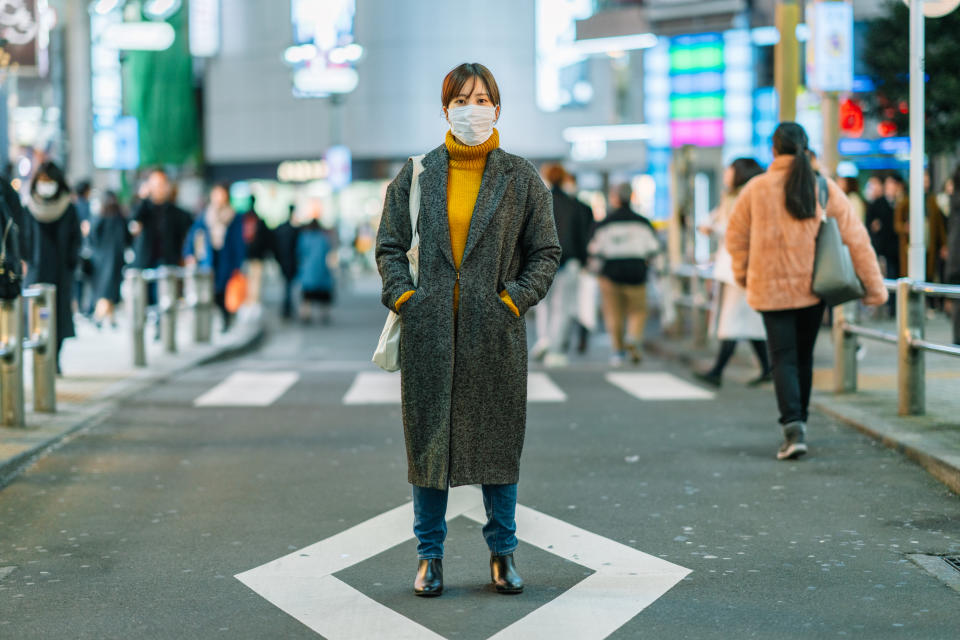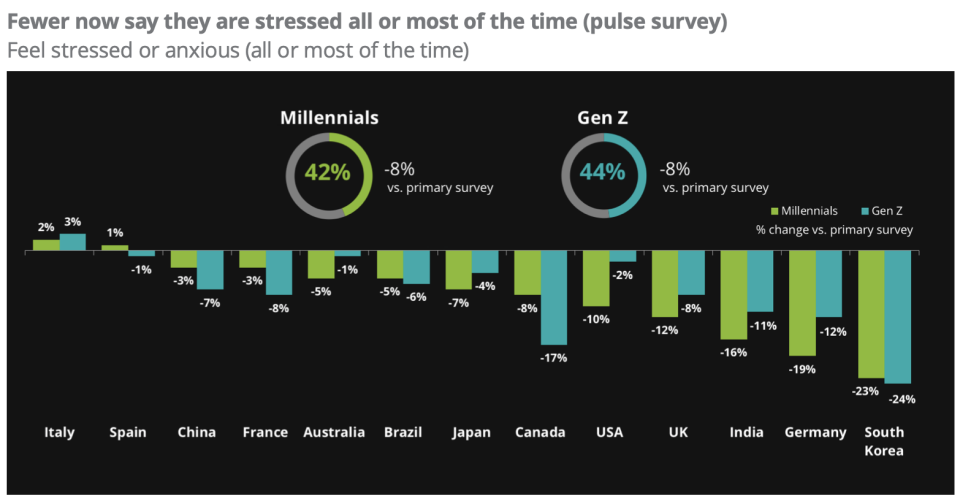Coronavirus: Millennials and Gen Z feel less stressed despite economic turmoil

Stress levels among the world’s younger generations have declined sharply during the coronavirus pandemic, despite the escalating global health crisis and the prospect of a prolonged recession.
The latest Deloitte Global Millennial survey found that anxiety levels among both millennials and those in the Generation Z demographic were eight percentage points lower than those seen prior to the crisis.
The findings suggest that younger people have not been significantly deterred by the widespread disruption, which has resulted in a significant increase in youth unemployment levels.
At the time a follow-up “Pulse” survey was conducted in late April and early May, around 20% of millennials had been put out of work in the wake of widespread lockdowns and an unprecedented dent to global economic activity.
Only a third of millennials and 38% of Gen Z respondents said that their employment or income status had not been affected by the pandemic.
READ MORE: Young lockdown 'supersavers' cashing in on falling house prices
Though the pandemic seems to have prompted a marked fall-off in stress levels, 42% of millennials still said that they were stressed or anxious “all or most of the time.” Some 44% of Gen Z respondents reported similarly.
Concerns about the welfare of their family, career prospects, and their long-term financial futures were among the biggest factors contributing to the high stress levels.
“Millennials and Gen Zs certainly had more concerns about their health, the welfare of their families, job prospects, and their long-term financial futures after the onset of the outbreak. But the crisis also forced life to slow down,” Deloitte said on Thursday.
Some 61% of respondents said that they believed their financial situations would either worsen or stagnate over the next year.

Calling the level of stress experienced by young people “uncomfortably high,” the financial services firm said that millennials and Gen Z nonetheless demonstrated an ability to “roll with the punches.”
“They are deeply affected by the pandemic but seem able to see opportunity in the darkness,” it said.
The results of the survey also showed that young people hold favourable views about the responses of governments and businesses to the pandemic.
They are also more optimistic about the environment and have developed a stronger commitment to financial responsibility compared to the 2019 edition of the survey.
Climate change remained the top concern for millennials in this year’s survey even in spite of the health crisis, with 28% citing it as their main priority.
Both millennials and Gen Z are more optimistic about the prospect of tackling climate change more generally, with fewer believing it is now too late to repair the damage caused to the environment.
READ MORE: UK internships fall by 64% in a year
Around 80% of respondents said that businesses and governments should take greater action on climate change in view of the positive environmental impacts of the pandemic.
But nearly two-thirds of respondents feared that environmental and climate change initiatives will become less of a priority as governments and businesses instead focus on the economic impact of the pandemic.
“The COVID-19 pandemic has radically shifted our way of life — how we work, socialise, shop, and more — and young generations were especially impacted,” said Michele Parmelee, Deloitte’s global chief people and purpose Officer.
“However, despite uncertain and discouraging conditions, millennials and Gen Zs express impressive resiliency and a resolve to improve the world. As we rebuild our economies and society, young people will be critical in shaping the world that emerges.”

 Yahoo Finance
Yahoo Finance 
